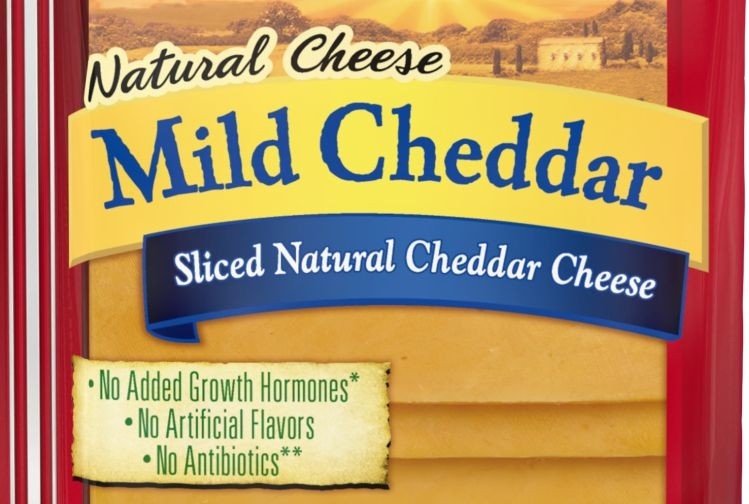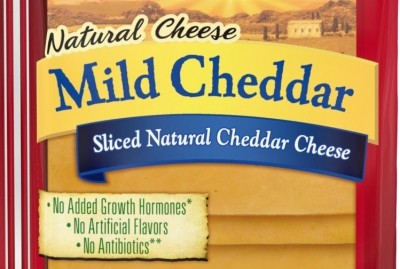Sargento lawsuits shine a light on ‘no antibiotics’ claims on food labels

In two lawsuits* filed against cheesemaker Sargento Foods in December 2020 and January 2021, plaintiffs represented by Richman Law & Policy argue that, “Reasonable consumers, seeing Sargento’s prominent ‘No Antibiotics’ representation, would expect that the products are made without the use of antibiotics and, therefore, never contain antibiotics.”
They go on to cite a 2018 report from Consumer Reports which they say found that 67% of consumers believe the claim ‘no antibiotics’ means that ‘no antibiotics were administered to the animals under any circumstances’ (although if you read the small print of the report, the 67% figure refers to consumers who said this is what a ‘no antibiotics’ claim ‘should’ mean).
Sargento has not formally responded to the lawsuits yet, but includes a disclaimer on pack spelling out that its ‘No Antibiotics’ claim means that ‘Our cheese is made from milk that does not contain antibiotics,’ presumably to avoid any confusion as to the scope of the claim.
Even if consumers did read this “fine print disclaimer,” however, argue the plaintiffs, it is false, because independent lab testing conducted in July 2020 shows that Sargento mild sliced cheddar had “detectable levels (0.985ppb) of the antibiotic sulfamethazine."
Jay Shooster, of counsel at Richman Law & Policy, told FoodNavigator-USA: "Consumers reasonably believe that 'no antibiotics' cheese is made with milk from cows who are not treated with antibiotics. The fine print on the label doesn't correct this belief, and regardless, consumers should not have to look for fine print to correct their reasonable beliefs.
"The complaint also alleges that Sargento's products sometimes do contain antibiotics and therefore even the fine print itself is literally false."
According to the FDA, sulfamethazine is prohibited from use in lactating dairy cattle and there is 'no acceptable level of sulfamethazine residue.'
Growing trend in food litigation to look beyond the ingredients list
Sargento – which was sued in 2017 over ‘natural’ claims on products using milk from cows fed GM feed or treated with the growth hormone rBST – said it does not comment on pending legal matters.
Attorneys contacted by FoodNavigator-USA said these kinds of cases reflect a growing trend in food litigation to probe beyond the ingredients list and look further down the supply chain at things such as incidental additives, processing aids, pesticide residues, genetically engineered feed, antibiotic use, and animal rearing methods – a strategy that has had limited success in the courts.
Attorney: 'Sargento will likely be reviewing documentation provided to it by its suppliers'
William C. Acevedo, partner at law firm Wendel Rosen LLP, said the lawsuits "call into question Sargento’s claim substantiation process and the sufficiency of its disclaimer regarding its 'No antibiotics' claim,' adding: "It is not reasonable to think that a dairy cow would never become sick and require treatment. As such, it is possible that an antibiotic might be needed under certain circumstances.
"Having said that, dairy producers are well aware of the USDA’s and the FDA’s desires and efforts to eliminate the potential for drug residues in food products, including milk. As a result, dairy producers will have protocols in place pertaining to antibiotic use, treatment, herd health, drug residue screening test, and segregation of treated cows.'
He told FoodNavigator-USA: "Sargento will likely be reviewing documentation provided to it by its suppliers, as well as the practices employed by its suppliers to mitigate or lessen the chances of antibiotic residues. Additionally, it will likely be reviewing its own quality assurance protocols to understand whether there is any truth to the plaintiffs’ claims of antibiotic residues in its products. This is an issue that will require expert analysis, and I would not want to speculate on what that analysis may show.
"Having said that, in December 2019, the Food Safety and Inspection Service issued labeling guidance explaining the documentation needed to substantiate animal raising claims to be used on labels... For instance, to use a 'Raised without antibiotics' claim, source animals cannot be administered antibiotics in their feed, water or by injections at any point in the product process. Examples of this type of claim include “No Added Antibiotics,” “No Antibiotics Ever” and “Raised Antibiotic Free.” There really isn’t much wiggle room in the guidelines for those types of claims."
First and foremost, he said, Sargento "will need to prove that this claim ['Our cheese is made from milk that does not contain antibiotics'] is not false."
And even if the claim is accurate, he said, "Sargento should consider whether it could be deemed misleading in any particular as phrased."
*Quynh Phan, et al. v. Sargento Foods Inc., Case No. 5:20-cv-09251, filed in December 2020 in the U.S. District Court for the Northern District of California; and Beyond Pesticides v Sargento Foods Inc, Case No 2021-CA-000178 B filed in January 2021 in the Superior Court of the District of Columbia Civil Division
In the wake of a growing body of evidence highlighting the risks of antimicrobial resistance in humans, the FDA recently moved to eliminate the use of antibiotics for production purposes in farm animals (for growth promotion and feed efficiency in animals raised for meat) and has urged farmers to use them more judiciously when treating animals that are sick.
Milk shipments are tested for medically important antibiotics such as cephalosporin, the most widely used antibiotic for treatment of mastitis, and when cows are treated, farmers discard their milk until the residues disappear.
The legal standard requires that milk contain no detectable antibiotics when analyzed using approved test methods.

















